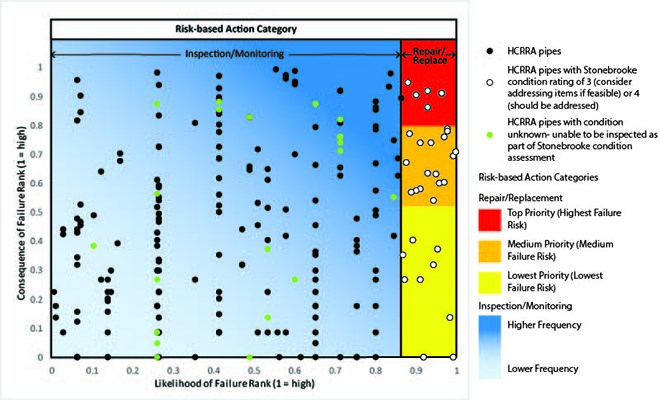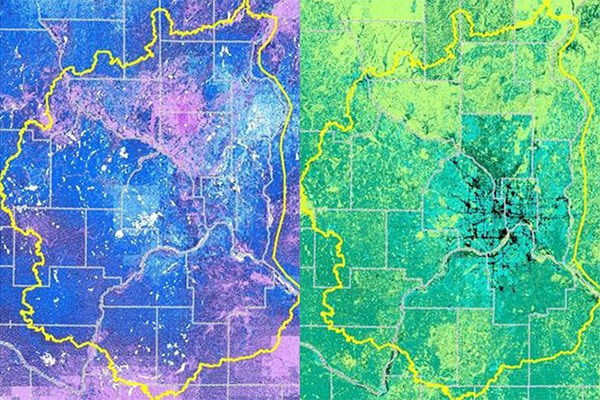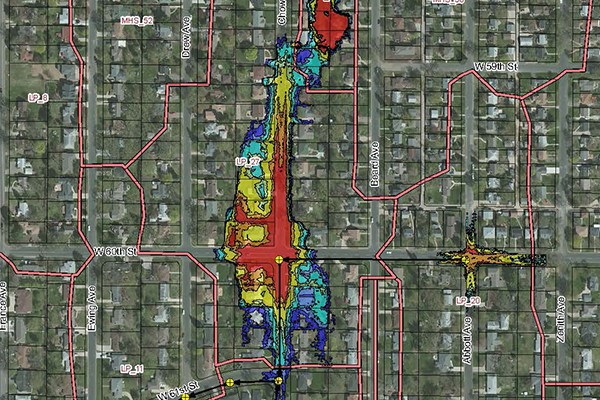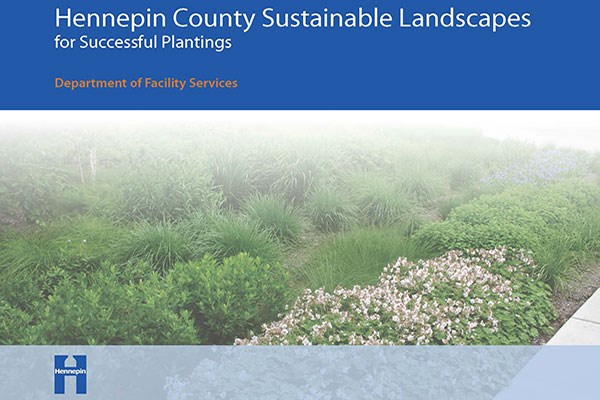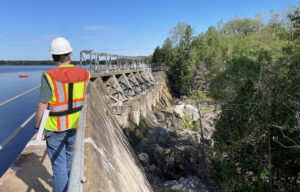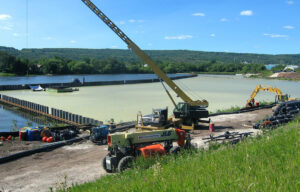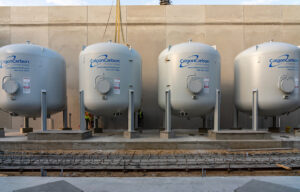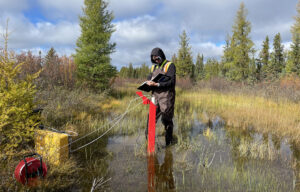
Barr helps clients in the mining, power, and fuel sectors—as well as local and regional communities and governments—develop effective climate-change resiliency strategies. Climate-adaptation planning falls into two categories—reactive and proactive.
Reactive and proactive solutions for climate change
Reactive solutions are those that lessen the impacts of events such as flooding, droughts, heat waves, or extreme storms that are already occurring or worsening from climate change. Barr’s engineers, scientists, and technical experts work collaboratively to model and design reactive responses such as emergency energy and drinking-water-supply system design, flood-control design, infrastructure recovery, and river and stream-bank stabilization.
Proactive solutions involve our strategic thinking to make informed decisions that minimize vulnerability and risk. Barr helps our clients ask the right questions, evaluate impacts of extreme events, assess vulnerability, facilitate planning, and develop the most effective solutions. We frequently host workshops for decision makers to hear from climate specialists and panels of their peers to gain insight into current conditions and issues, climate trends and future impacts, and climate-change preparations that are already underway.
How we help navigate climate change challenges
Barr helps clients ask the right questions to develop practical and actionable climate change adaptation strategies.
Our experts also work with clients to facilitate educational and planning sessions with stakeholders to identify local impacts, assess vulnerability, and prioritize strategies to increase community resilience.
These strategies can then be incorporated into comprehensive plans for companies, facilities, or communities. Our team frequently presents on climate-change resiliency across the U.S. and Canada. Contact us to learn how Barr can help you effectively navigate climate change challenges.
Related projects
Sustainability and resiliency
Barr helps clients devise and refine strategies related to lifecycle assessment, climate change, sustainable design, and sustainability data collection and reporting. We work with them to identify factors affecting resiliency and to develop resilient systems.
Stormwater infrastructure management assistance
Barr developed a risk-based program to help Hennepin County Regional Railroad Authority manage its stormwater infrastructure and evaluate the likelihood of stormwater infrastructure failure and the possible consequences of failure.
Groundwater-flow model of the Twin Cities metro area
For more than a decade, Barr has worked with the Metropolitan Council to develop, maintain, and update a groundwater-flow model of the eleven-county metropolitan area of Saint Paul and Minneapolis, Minnesota.
Vulnerability assessment of municipal stormwater system
To help the City of Edina, Minnesota, better understand flood risk for its community, Barr assisted in updating the city’s comprehensive water resources management plan and conducted a stormwater system vulnerability assessment for 25 specific flood areas.
Hennepin County sustainable landscape guidelines
Barr developed guidelines and plant lists to help Hennepin County navigate new landscape projects and prioritize landscape management, resulting in more durable, robust landscapes.
Download files
- AdaptationPlanningDiagram_Non-Industrial-3.pdf (.pdf, 0.91 MB)


